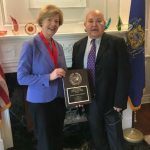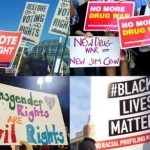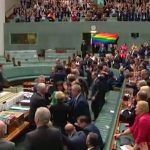NEW YORK, N.Y. — Findings from a new Ogilvy survey released Wednesday of over 1,000 Americans including over 400 LGBT allies revealed that nearly two-thirds of Americans (65%) believe that LGBT-inclusive brands/businesses are good for the economy and similarly (64%) believe that these initiatives reflect our country’s diversity. However, the majority (68%) report that in order to be an LGBT ally, brands/businesses need to “walk the talk” following through on promises and plans.
“Our survey demonstrates that creating LGBT inclusive advertising should be more than just a diversity initiative. When it’s done right, it can be a way to drive value at a higher level for an entire business,” said Bill Berman, Ogilvy Account Director and Co-chair of Ogilvy Pride. “The survey also confirmed that both Americans and LGBT allies are affirming their beliefs with their purchase decisions by supporting brands that champion LGBTQ issues and avoiding those who openly discriminate against the community.”
The survey also found that LGBT-inclusive advertising can be a key business driver among consumers as 64% of LGBT allies and 46% of all Americans surveyed say that seeing a brands’ LGBT-inclusive advertising would make them more likely to consider purchasing its products/services. Opposing inclusion can also impact purchasing decisions with 63% of LGBT allies and 48% of Americans reporting that they try to avoid buying products/services from a brand/business they know discriminates against the LGBT community. See infographic.
Additional key findings:
- Over seven in ten Americans (72%) believe that a brand/business that is LGBT-inclusive is an ally of the LGBT community.
- Over one-third of Americans (35%) report having LGBT-inclusive advertising is an indicator that a brand/business is LGBT-inclusive.
- One in four Americans (25%) report social media (e.g., Facebook, Twitter, etc.) as a source that has provided them information about whether a brand/business is LGBT-inclusive.
- Nearly three in four Americans (73%) report it is important for brands/businesses to employ a diverse team of people to best serve customers.
- Further, nearly six in ten Americans (57%) believe brands/businesses should hire diverse advertising professionals to create LGBT-inclusive advertisements.
“Diversity has always been and will always be a part of Ogilvy’s DNA, our core values and our culture, as set forth by our founder David Ogilvy nearly 70 years ago,” said Donna Pedro, Global Chief Diversity Officer, Ogilvy. “A key pillar of our Next Chapter strategy is to establish a diverse workforce reflective of the clients we work with and the brands that they represent. We have made solid progress under WW Chairman and CEO John Siefert’s vision,” added Pedro. “By putting in place concrete measures and holding people accountable, we are taking the steps needed to support important diversity and inclusion efforts across the enterprise.”
In conjunction with the release of the Ogilvy survey, Ogilvy is hosting a panel event on the role of allies in LGBTQ Marketing, moderated by Fortune Magazine reporter Grace Donnelly. Panel participants include:
- Anita Dolce Vita, Owner and Creative Director, dapperQ
- Mark Lane, Director of Corporate Communications, Barclays
- Matt Tumminello, Founder and President, Target 10
About the Survey
Ogilvy fielded a seven-question survey of among 1,087 Americans (aged 18+), of whom 436 were considered LGBT Allies, to understand their perspectives about the lesbian, gay, bisexual and transgender (LGBT) community as it relates to the brands (e.g., Walmart, Ford, Apple, Bank of America, etc.) and businesses (e.g., local coffee shops, restaurants, etc.) they interact with day-to-day. The online survey was fielded by YouGov from May 18-19, 2017, and figures have been weighted and are representative of all US adults.*NOTE: The Ogilvy Pride internal organization created this survey.
LGBT allies were defined as Americans who do not identify as LGBT, but have beliefs or have taken some action in support of the LGBT community (stopped purchasing from a non-supportive brand, donated to LGBT-related charities, have LGBT friends, etc.).















